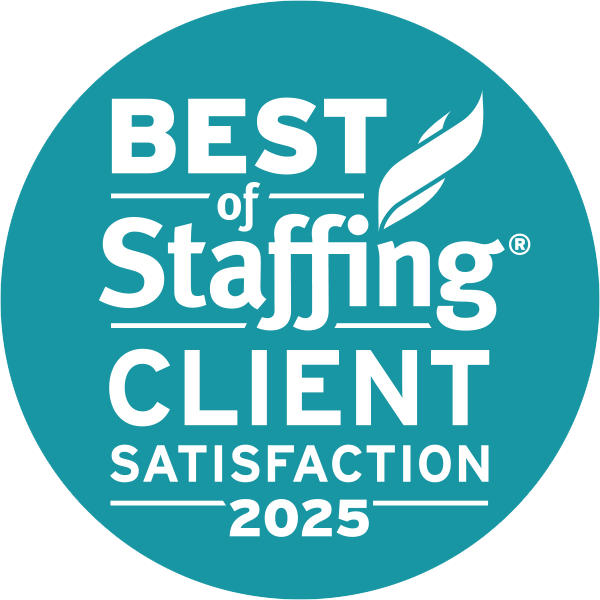
Everything You Need to Know About Locum Tenens
Answers to Your Top Questions About Locum Tenens
Are you interested in learning more about the locums lifestyle? Want to discover how locum tenens works? Wondering whether it’s the right choice for you? Here are answers to your most-asked questions about this outstanding way to practice medicine!
What is locum tenens?
Locum tenens is an arrangement in which healthcare providers temporarily fill in for other providers. Locum tenens physicians, advanced practice providers, and dentists substitute for others who are on leave. They also temporarily fill vacancies or gaps when healthcare facilities need additional staff.
What is the meaning of locum tenens? Why is it called locum tenens?
Locum tenens means “to hold a place” or “one holding a place.” Locum tenens has been used in English since the 1600s and is derived from Medieval Latin. Today, it is used to describe healthcare providers who temporarily fill in for others.
What does being a locum mean?
“Being a locum” is short for “being a locum tenens” and means working on a temporary assignment as a healthcare provider to fill a vacant position, help with shortages, or cover for a permanent provider on leave.
What is locum tenens, and how does it work?
Locum tenens is an arrangement hospitals and other healthcare facilities use to “hire” temporary providers. Locum tenens providers aren’t temporary employees. They’re independent contractors who the IRS considers to be self-employed. Therefore, providers who work locum tenens must pay quarterly estimated taxes and file form 1099.
Who works locum tenens jobs?
Physicians, nurse practitioners, physician assistants, nurse anesthetists, nurse midwives, dentists and other providers work locum tenens jobs. Providers at all stages of their careers choose to work locum tenens jobs for various reasons, from living a more independent lifestyle to moonlighting to earn extra income.
Why locum tenens?
Healthcare providers choose to work locum tenens for a range of reasons: to work for themselves as independent contractors, to work part-time and supplement their income, to come back partially after retirement, to enjoy less stress, to travel and see the world, to build a network, to explore clinical interests, to try out a position to see if it’s a permanent fit, and more.
What are the advantages of locum tenens?
The advantages of locum tenens include the ability to explore exciting locations across the nation, the flexibility of having access to nearly any schedule, the freedom of not being tied down for the long term, the ease of less administrative work and practice politics, and the opportunity to earn great pay, bonuses and perks, and more!
Is locum tenens worth it?
Yes, locum tenens is worth it! If your permanent position allows it, you can take locum tenens positions on the side, so you can enjoy the best of both worlds. If on the other hand, you decide to make locums your career, it’s true that you’ll give up the security of having a full-time employer and the benefits (like health insurance, life insurance, withheld taxes, etc.). But in return, you’ll have the independence, freedom and autonomy of being self-employed. You can purchase health and life insurance on your own and file your taxes yourself. You have the potential to earn more on an hourly basis as a locum tenens provider. You just have to decide whether the lifestyle is right for you.
Do locum tenens make more money?
In many cases, locum tenens may make more money than salaried providers. Locum tenens providers are typically self-employed and are paid an hourly rate. They enjoy perks like paid travel and housing. Because they’re independent contractors, they can take business deductions for health and dental insurance premiums, work computers, lab coats, etc. On the other hand, permanent providers receive salaries with benefits. Figuring out who makes more is kind of like comparing apples to oranges. Locum tenens can earn more money in areas of high need, like rural health, hard-to-fill specialties, etc.
What are the benefits of locum tenens?
If you choose to work locum tenens, you can enjoy a greater work-life balance, avoid burnout by practicing in a new setting, escape administrative burdens, learn from providers across the nation, work with new patient populations, pair work and travel, and have a team of recruiting, credentialing and travel experts on your side!
What are the cons of being a locum doctor?
The cons of being a locum doctor are that you won’t be provided with certain benefits like health and life insurance, your taxes won’t be withheld from your paycheck, and you won’t have other things associated with being an employee of an organization. At first, you may feel like you’re separate from the team or that there’s a learning curve. Fortunately, there are easy fixes to these drawbacks! And we think the pros outweigh the cons.
Is locum tenens for me?
Do you want to pair work and travel? Do you have a spirit of adventure? Do you adapt well to new situations? Do you like to meet new people? Do you value a flexible schedule? Do you want to build your clinical network? Do you want to learn how providers and facilities practice medicine differently across the country? Do you want to explore different areas of interest or care for specific patient populations? Do you want to work for yourself? Then, yes! Locum tenens is for you.
Why do hospitals use locum tenens?
Hospitals and other healthcare facilities use locum tenens to cover vacancies. Locum tenens providers fill in when permanent providers go on maternity leave, sick leave, or vacation leave. Hospitals also use locum tenens support when there are vacant positions that haven’t been filled or when there are patient surges or provider shortages. Many hospitals use locums to give their providers a rest to avoid burnout and ensure staff is not overworked. Hospitals most often turn to locum tenens agencies to handle screening and hiring of providers. This makes it easy to rapidly ramp up and pare down support.
How do hospitals feel about locum tenens?
Hospitals appreciate locum tenens providers because they help organizations offer uninterrupted access to healthcare. While facilities do have to contend with some challenges of bringing on temporary support – like the learning curve for new equipment, processes and procedures – they generally have a favorable view of locum tenens providers (Revcycle Intelligence).
Is becoming a locum tenens provider worth it? Is locum tenens worth it for physicians?
Becoming a locum tenens provider is definitely worth it for all types of clinicians! There’s a trade-off for each situation. If you’re a new provider choosing the locums lifestyle over a permanent position, instead of building your career with one organization for the long run, you’ll be experiencing diverse locations, facilities, patient populations, practice methods and care teams. If you’re leaving a long-term salaried position to start a career out of locums, you’ll be trading benefits of being a full-time employee with an organization for flying solo as your own boss. If you’re supplementing a permanent position with a locum tenens assignment on the side, you’ll be increasing your hours, but earning (and learning) more. Whether it’s worthwhile to make these significant changes depends on your lifestyle and goals.
Can locum tenens be a full-time career? Should you consider locum tenens as a career?
Yes! Locum tenens can be a full-time career, and one you should seriously consider. Growing numbers of providers across the nation are crafting careers as locums. The locums lifestyle appeals to all manner of clinicians, but especially to younger professionals who have grown up in a more mobile era. Regardless of what stage of your career you’re in, if you develop a long-term relationship with a trusted locum tenens agency, you won’t want for work! Your recruiter can line you up for your next assignments before you even complete your current one. Plus, if you ever decide locums isn’t for you, you can easily switch back to permanent work.
Why do doctors do locum tenens?
Many doctors and healthcare providers turn to locum tenens to renew their passion for the practice. Perhaps you want to continually learn and grow, find reward in patient interactions, expand your career and contribute to the field. Or maybe your motivation is to find more time for yourself and your family or to travel and see the country. If so, locums might be for you.
Why do locums after residency?
Many providers do locums after residency to explore their options early in their careers. For example, if you haven’t decided what type of facility you prefer (inpatient, outpatient, private practice, etc.) or if you don’t know where in the US you’d like to live. Perhaps you don’t have a family yet and feel free to travel and meet new people. Entering locums after residency is also a unique way to try working at a particular facility, get exposure to leading experts in your field, build your network, CV and reputation, and much more.
How long are locum tenens assignments?
Locum tenens assignments vary in length. Some are only a few shifts or a few days. Others can last several months. Most locum tenens assignments run from a couple of weeks to a few months.
What are the advantages of locum tenens vs. permanent practice?
Working as a locum tenens healthcare professional offers a greater level of choice and control in your career path and the ability to travel and explore new practice settings. Additionally, physicians and advanced practitioners doing locum tenens work can concentrate on patient care and avoid much of the paperwork associated with traditional practice. Plus, you can enjoy the independence of working for yourself!
What do retired doctors do? Should I work locum tenens if I am a retired doctor?
Many doctors who step back from the rigors of a busy day-to-day practice still want to practice medicine on a limited basis. As a retired physician, locum tenens allows you to control your schedule and choose the times and places to practice. It enables you to do what you enjoy and practice medicine the way you want.
Can I bring my spouse, children, or pet on locum tenens assignments?
Yes! You can usually bring your spouse or children on locum tenens assignments. In some cases, you can even bring your pets too! A good reason for choosing to work locum tenens before going into a permanent practice is so your family can experience the community before moving. Each opportunity has its own parameters though, so speak with your recruiter to determine the best scenario for traveling with your family.
Do I get to pick the location of my locum tenens assignments?
Yes! You can select where you want to work in the US, depending on your licensure. Freedom of choice and flexibility are significant benefits of locum tenens! However, the more flexible you are the more options you’ll have. Some providers like to stay within a particular state or region. But, remember, as a locum tenens provider, you are an independent contractor and are entirely free to determine the direction of your career and how often you work, where you work and how long you work.
Do locum tenens get bonuses?
Yes! Locum tenens providers can earn bonuses, depending on the agency they work for. There are even bonuses for referring colleagues!
How do I find the best locum tenens company?
To find the best locum tenens company, look for a team who cares about your interests, offers options across the country (if you want to travel) or nearby (if you want to stay home), and has many years of experience placing locum tenens providers. Also, consider finding an agency that offers other job opportunities, like temp-to-perm and permanent placement. Look for a company highly rated by healthcare agencies and providers that has the awards and recognition to show for it. Ask if they offer perks like referral bonuses, malpractice coverage, training, travel, and housing stipends. See if you can bring pets or family members on assignments when possible. And lastly, find out whether they have the technology and streamlined processes to make life easy for you.
How do I find the best locum tenens recruiter?
Don't be afraid to ask questions to find the best locum tenens recruiter for you. Look for skilled employees with experience and expertise. Find out whether the recruiter has contacts with all types of facilities – hospitals, rural health, government, private practice, etc. Check whether they feature a range of assignment lengths, from days to months. Ask the recruiter if they will walk you through the entire process and line up your next assignment before you end your current one.
What factors should I consider for a locum tenens assignment?
When evaluating a locum tenens assignment, consider the following factors to ensure it’s a fit: location, facility type, schedule, assignment length, specialty, patient volume, patient population, license requirements, technology skills, travel, housing, compensation, perks, and agency support.
How do I prepare for a locum tenens interview?
To prepare for a locum tenens interview, take the same actions you’d take to interview for a permanent position. Before the interview, research the healthcare organization, gather background on the position, practice for the interview, get plenty of sleep and eat a decent meal the day before. On the interview day, dress professionally, have copies of your CV and resume ready, and test your video and audio if you’ll be interviewing online. Be prepared to discuss your qualifications, the position and the organization. Have success stories to share and ask the interviewer questions about the position. Don’t forget to follow up afterward to thank the interviewer and let them know whether you’re interested.
What types of locum tenens positions are there?
There are locum tenens assignments for:
- Anesthesiologists
- Advanced Practice Providers
- Certified Registered Nurse Anesthetist
- Certified Nurse Midwives
- Dentists
- Emergency Medicine Physicians
- Family Medicine Physicians
- Internal Medicine Physicians
- Nurse Practitioners
- OB-GYNs
- Physicians
- Physician Assistants
- Psychiatrists
- And much more!
To get started, talk with a Cross Country Locums recruiter.
Follow Us

Business Address
Cross Country Healthcare
6551 Park of Commerce Blvd.
Boca Raton FL 33487
Local:(561) 998 - 2232
Toll Free:(800) 347 - 2264
Sales:(800) 876 - 7828
Business Hours
Monday - Friday: 9:00 AM - 10:00 PM EST
© 2025 Cross Country Healthcare | All Rights Reserved | Privacy Policy
















